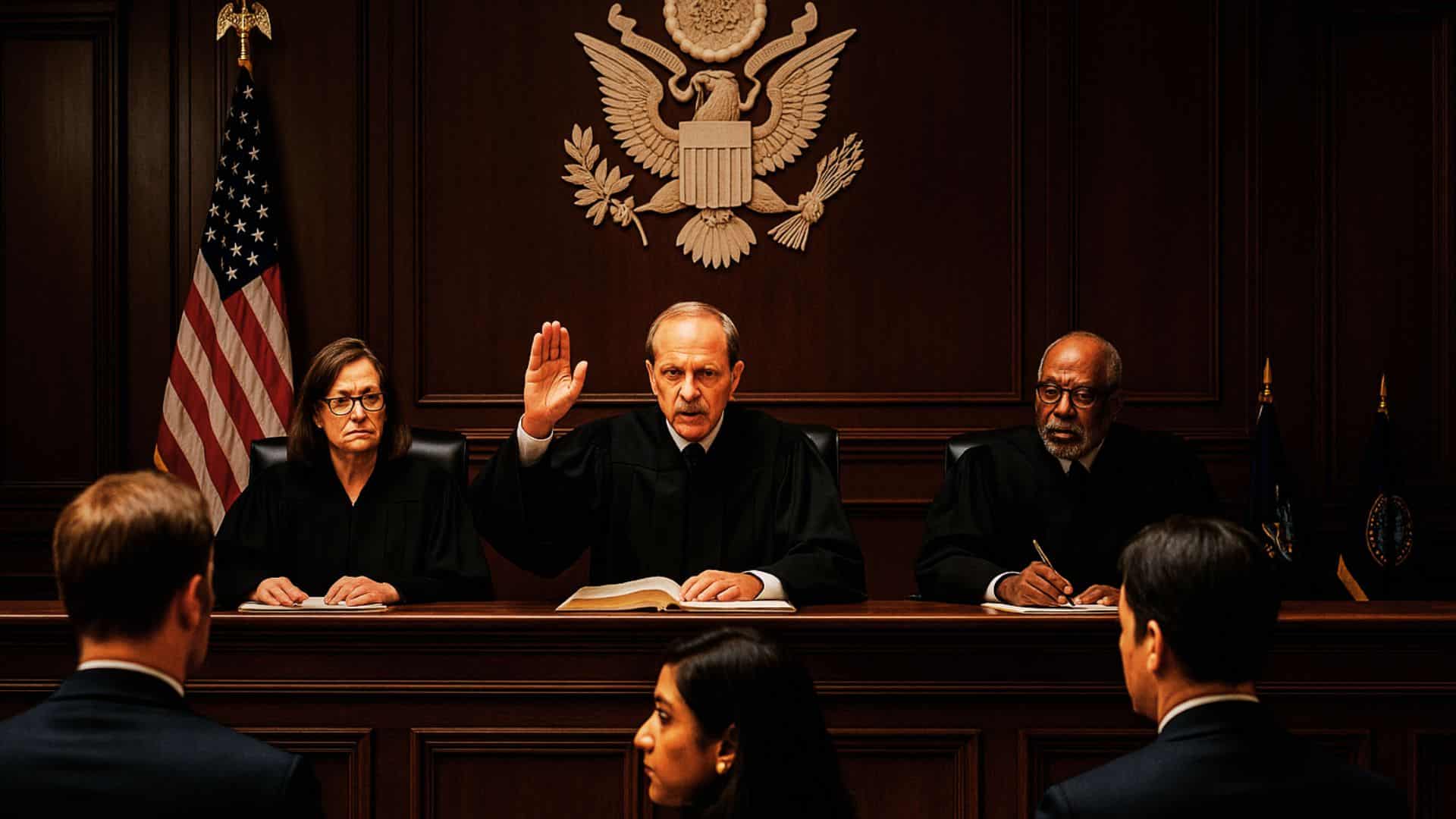According to the sources, the Trump Liberation Day tariffs faced a major setback after a federal court stopped these controversial tariffs. In response, the Trump administration has officially filed a formal appeal.
The court said in its main statement that the Trump administration went beyond its legal limits, making it clear that only Congress, and not the executive branch, has the right to control foreign trade.
This legal challenge is a big pushback for the Trump, whose trade policies relied a lot on acting alone with tariffs. Experts warn that the court’s decision might affect the ongoing negotiation with at least 18 countries and weaken the power that the White House has been using in its economic fights abroad.
Court Rejects Broad Interpretation of Emergency Trade Powers
The Court of International Trade has strongly rejected the use of IEEPA in this case by saying that the law was never meant to approve broad tariff plans. The judges pointed out that the ” emergency powers” should be limited to real national dangers like terrorism or war and not ongoing trade imbalances.

The decision was made after the two important lawsuits. One was brought by a small business, and the other by 13 U.S. states. Both challenged whether the tariffs were legal and made economic sense, as the tariffs ranged from 10 % to 54% and mostly Targeted countries like China.
White House Fires Back, Defends Trump Liberation Day Tariffs
The Trump administration immediately emade an appeal with the U.S. Court of Appeals for the Federal Circuit after the court blocked its Trump Liberation Day tariffs. White House spokesperson Kush Desai said that judges who are not elected can not decide how to handle a national emergency.
The Donald Trump teams say that the Liberation Day tariffs were an important way to protect the U.S. from unfair trade practices. Desai also said that it is not just about the money, but it’s about keeping the country strong.
Bitcoin Slides as Trump Administration Faces Uncertainty
According to CryptoBriefing, Financial markets reacted immediately to the court’s decision about the Trump Liberation Day tariffs. Bitcoin dropped below $75,000 and reached its lowest point in five months, but it recently went back up a little to $108,298.08.
Crypto experts think that the Trump’s administration’s tough tariff strategies might cause some unexpected problems. At the same time, U.S. stocks surged after the Trump Liberation Day tariffs were blocked.
The global investors were happy to see limits in presidential power. The U.S. dollar got stronger, and the Asian markets rose after weeks of nervous trading. This made market more optimistic.
Legal and Political Stakes Mount in Trump Administration’s Appeal
The appeal filed by the Trump shows this legal fight might last for a long time and could even reach the Supreme Court. For now, the administration has 10 days to start ending the Trumps Liberation Day tariffs unless a stay is granted.
Carla Mendelssohn, a policy expert at the Brookings Institution, said that this is more than just a small legal issue. The Donald Trump presidency is based on acting quickly and strongly in trade. If the court stops, then it hits right at the centre of Donald Trump’s economic plan.
Trump Administration’s Trade Doctrine Faces Its Greatest Test
The Trump administration is now facing an important challenge as it fights against the court’s rejection of the Trump Liberation Day tariffs. By making an appeal, the administration wants to bring the tariffs back and also defend the president’s power to act during economic emergencies.

While the Donald Trump team says its policies are needed to protect the U.S. economy, the courts are showing that there are limits to what future administrations can do in the name of economic nationalism.
Conclusion
The Trump Liberation Day tariffs are facing a big legal problem after a federal court stopped them, saying that the Trump administration went beyond its power. The administration is now asking a higher court to review this decision.
This case will decide how much control the president and Congress have over the trade rules, and the court’s decision will affect the U.S. trade plans and how future presidents can use emergency powers for the economy.
FAQs
1. What happened to the Trump Liberation Day tariffs?
A federal court stopped these tariffs, saying they were not legal.
2. When did the court block Liberation Day tariffs?
On May 28, 2025
3. Under what law were the tariffs imposed?
International Emergency Economic Powers Act
4. Why did the court block the tariffs?
The court said only Congress can control foreign trade, not the President alone.
5. Who challenged the tariffs in court?
A small business and a group of 13 U.S. states filed lawsuits against the tariffs.
Glossary
International Emergency Economic Powers Act- A law allowing the President to act fast in national emergencies affecting the economy.
Congress- The group of elected people who make laws in the U.S.
Executive Branch- The President and government officials who run the country day-to-day.
Trade Deficit- When a country buys more from other countries than it sells to them.
National Emergency- A serious situation that needs quick government action.
Sources




























